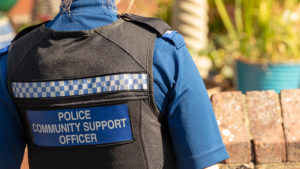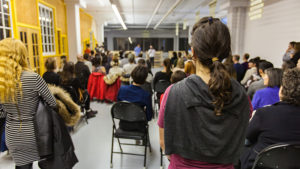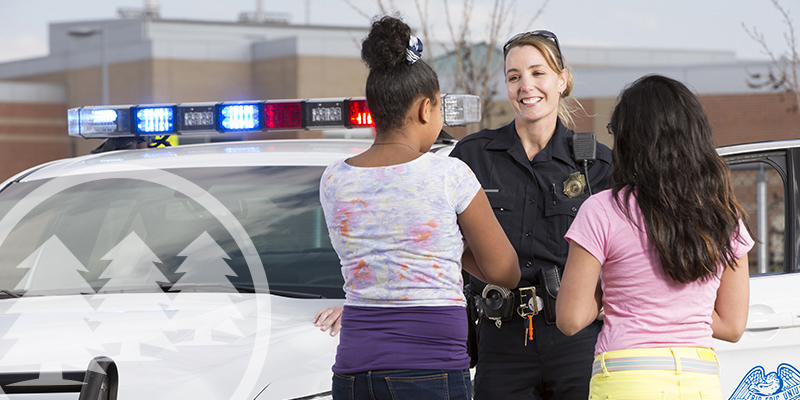Security is a chief concern among residents of a homeowners association. And one of the ways you can facilitate better security in your community is to cultivate a strong relationship between your HOA and local police.
How to Develop a Healthy Relationship Between the HOA and Local Police
Many people choose to move into neighborhoods run by homeowners associations out of a desire to live in a more secure area. But, security isn’t always a given in HOA communities. And, as a board member, while you can really only do so much to boost security in your association, a tried-and-tested method is to form a healthy working relationship with local law enforcement.
Here is how you can develop a strong relationship between your HOA and local police:
1. Talk to Your Community Liaison
Your local fire and police department will have a community liaison and it will benefit your HOA to get to know this person. Introduce yourself and your community so you can begin to develop a working relationship. Send the community liaison an invite to your annual meetings and ask them to prepare a presentation on crime prevention.
Some departments, though, may not have a designated community liaison. This is typically the case for smaller towns with smaller fire and police departments. In that case, it’s a good idea to set up a meeting with the police chief as a way to introduce your HOA, even if you’re not dealing with anything particularly pressing. In doing so, you will find it easier to obtain their assistance in case something does crop up.
2. Actively Involve the Police
If you want to strengthen your community’s relationship with local law enforcement, it’s a good idea to keep them involved. For instance, if your HOA is considering setting up a neighborhood watch, ask your local police to provide some insight and advice.
It doesn’t even have to be very formal. One way to introduce your association to local officers is by inviting them to a community event or even to your home for dinner and drinks. This helps put a face to the name instead of dealing with a faceless department or HOA. The bond between the HOA and local police begins with getting to know each other.
3. Support Police Events

Relationships are a two-way street. And for HOAs, that means supporting the events your local police and fire department are engaged in.
If you hear about an event, reach out to your community liaison and ask if they need help with anything. Perhaps you can have members of the community volunteer for booth manning duties or make donations. Even the mere act of attending the event can make a huge difference.
Extending a helping hand not only promotes volunteerism and involvement within your community but also invites collaboration. Police officers will be more inclined to return the act of friendliness and goodwill.
4. Respect Their Time
Just because your HOA has a good rapport with local law enforcement doesn’t give residents an excuse to act belligerently. To form and maintain a great relationship, educate residents on when they should and shouldn’t make calls to the police. Keep the nuisance calls to a minimum to preserve the community’s reputation with law enforcement.
When your local police department consistently receives calls and complaints that turn out to be false alarms, they lose trust in your community. Additionally, if residents have alarm systems, tell them to have these systems checked regularly so they function normally. This way, no alarms will go off accidentally and trigger an unnecessary response from the police.
5. Be Open to Suggestions
When you turn to the police with a problem, make sure to ask for their opinion. Don’t just barge in with a solution already outlined and expect them to implement it for you. This kind of attitude will put them off and strain your relationship with them.
Instead, ask local law enforcement for suggestions. Be open-minded. Always remember that the police are experienced professionals — they’re the experts here, not you.
6. Hire Officers and Pay Them Overtime
 If possible, you could set up an agreement between your HOA and local law enforcement to have interested officers do some overtime in your community.
If possible, you could set up an agreement between your HOA and local law enforcement to have interested officers do some overtime in your community.
Cops can sit in their patrol cars and monitor the community for anything suspicious. This is a good way to crack down on localized problems.
For instance, if you’ve been getting reports of theft from residents during certain hours, having police officers there during these hours can help put an end to the crime spree. Of course, this would mean having to pay for their overtime hours using the association’s funds, so make sure your budget allows for this as well.
If your budget currently can’t swing the overtime pay, consider including it in your next year’s budget. While you can theoretically charge a special assessment for this, it’s generally not recommended. In some states, though, HOAs are allowed to create a crime district tax to earn some revenue for security purposes.
7. Look Into Providing Housing
While this may not be possible in all communities, larger condo associations can typically offer housing as compensation for a cop to live within the development. Having someone involved in local law enforcement live in the community can boost security, prevent crime, and make residents feel generally safer. It also helps promote a better relationship between the HOA and local police.
8. Know That the Law Applies to Everyone
For some strange reason, some residents tend to feel that a working relationship with local police automatically means being exempt from the law. Residents will call the police department and report a complaint about speeding in the community. Then, when a police officer shows up, they discover that the very people committing the infraction are members of the HOA.
Don’t expect local law enforcement to show any favoritism just because your HOA has a good relationship with them. It’s also the duty of residents to act as upstanding citizens and always act within the law. When an HOA’s residents think they’re above the law, it gives police officers a bad impression of the community.
9. Keep Residents in the Loop
 Some people just don’t like the police for their own reasons — and that’s okay.
Some people just don’t like the police for their own reasons — and that’s okay.
As a board member, though, it’s part of your job to listen to the voices of owners and make a decision from there. If a lot of people are against the idea of collaborating with local law enforcement, then perhaps that’s not the best course of action for your particular community.
If you do have an existing relationship with the police, though, make sure to keep residents informed. Let them know what the police have done and are continuing to do to help your community. This will build trust and foster peace in the long run.
The Benefits Outweigh the Risks
Crime prevention is the obvious benefit of cultivating a relationship between your HOA and local police. Yet, it also contributes to faster response times and a greater sense of security within the community. While there are a few risks involved, such as an officer acting outside of their authority, having good relationship with law enforcement is still better than a nonexistent one.
It can be difficult to maintain a healthy relationship with local police as well as vendors and contractors. But, an HOA management company like Cedar Management Group can make it significantly easier. Call us today at (877) 252-3327 or contact us online to get a free proposal.
RELATED ARTICLES:
- What’s The Real Deal About Police Vehicles In An HOA Community?
- HOA Security Cameras: Maintaining Security And Privacy
- How Do You Build Healthy Relationships With HOA Vendors






